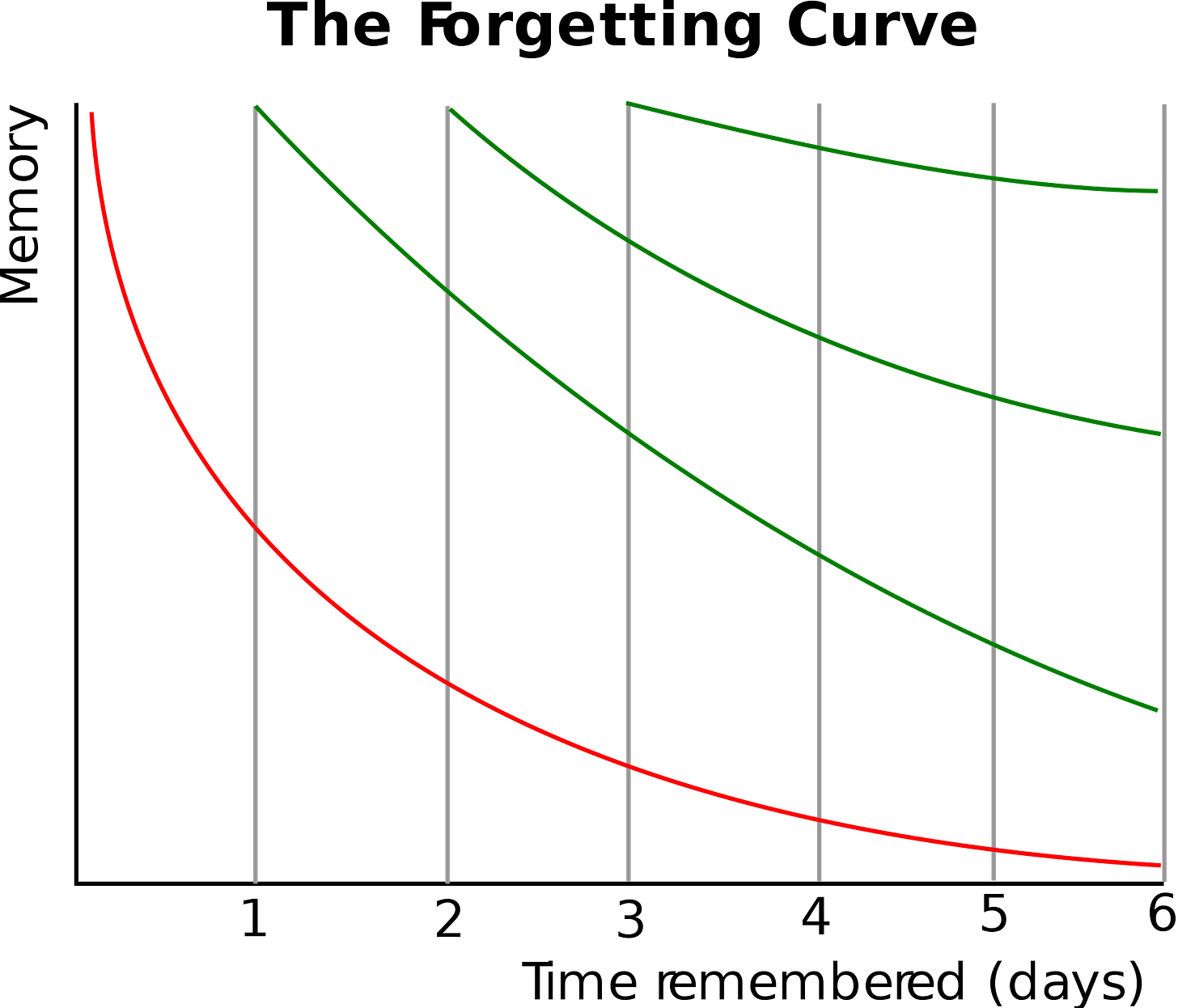Forgetting and Relearning
"They'll just forget it all over break anyway."
School starts again on Monday. We were working on adding and subtracting positive and negative numbers before break and we have a bit more to do on that topic before we move into multiplication and division. I can predict, like many other teachers, that if I start class on Monday by diving right back in students will have forgotten much of what we learned before break.
There's a narrative I hear sometimes that says, "There's no point, they'll forget it over break," or "they forgot everything over the summer, I need to reteach everything at the start of the year," something along those lines. And sure, it looks that way at first glance.
Quick digression. The graph below comes from Hermann Ebbinghaus and is often called the forgetting curve.
It was a limited study over a hundred years ago with a sample size of one but the results were an important demonstration of how repeated exposure slows forgetting. Fun fact: Ebbinghaus was actually measuring the rate of relearning. In other words, if you have learned something before, even if you can't recall it right away, you relearn it much faster than the first time — and relearning it means you will forget it slower in the future.
Even if students can't recall how to add and subtract positive and negative numbers right away they will probably remember most of it after a quick reminder. That's where teachers can fall into the trap. It's tempting to say, "students forgot everything, I need to spend a few days reviewing everything we did before break." That's often not necessary, and a five-minute reminder mini-lesson can go a long way. Check for understanding, spend a bit more time on any specific pieces that are still confusing, and I'll probably be all set.
I experienced this principle myself recently. I was working on a coding project (I'll write about it in the coming weeks). Coding has been a hobby of mine for a few years. For this project I needed to use React and Git, two frameworks I learned years ago but haven't used since. When I began the project I didn't know where to start. If you’d asked me to code a basic component in React or push a commit using Git I wouldn’t know how to do it. But as I looked things up and started coding everything came back. I didn't need to retake a full course, I just needed some quick reminders.
The moral of the story is that forgetting is part of learning. It's easy to get frustrated coming back from a break or even just a weekend and focus on what students have forgotten. But relearning is often quicker than we think it will be. That process of forgetting and relearning will create more durable learning for the future. If I come back and say, “hey everyone, who remembers what we did before break?” I’ll be disappointed by what I hear. Instead, if I say, “hey everyone, here’s a quick reminder of what we did before break and a few quick practice problems,” I’m likely to see most stuff come back quickly — and I can figure out what isn’t coming back, and address that rather than trying to reteach everything.



Agreed and confirms what I know about the effectiveness of cumulative review and deliberate practice…. Both have substantial research support!! 👍👍😊
I’m finding this learning statistics for the first time. My old principal used to call the role of leaders “chief repeating officers.” Just as true for adults.